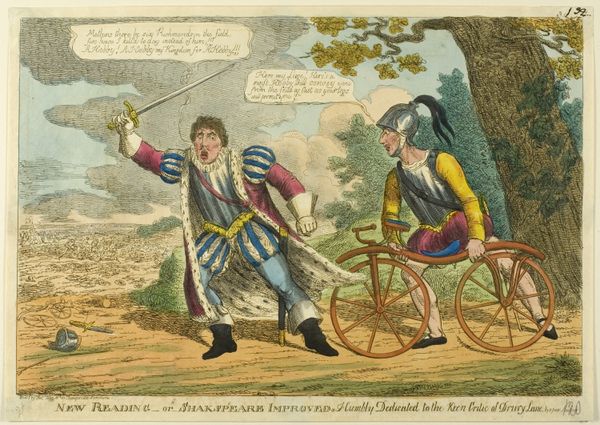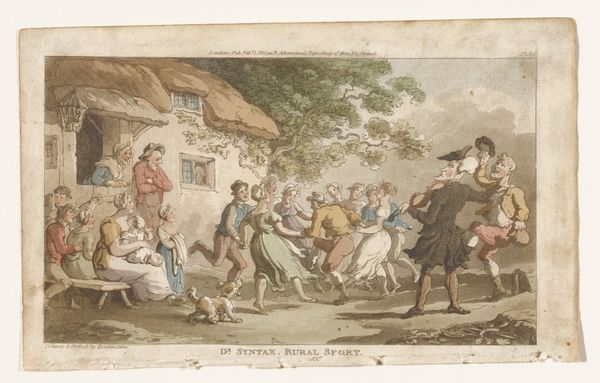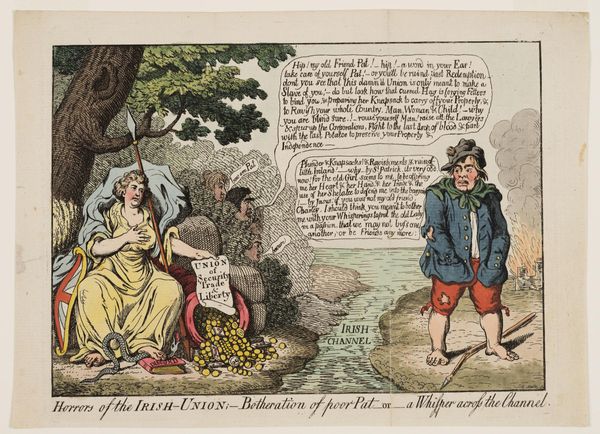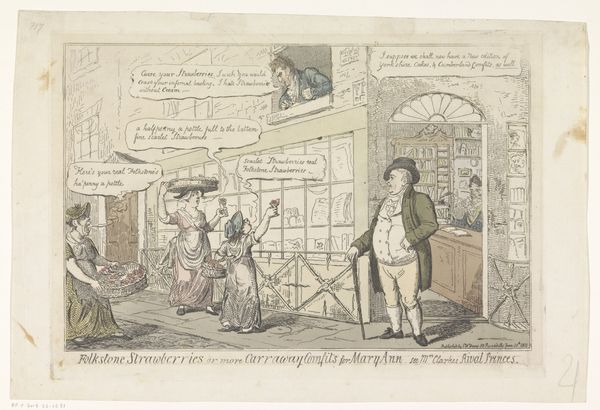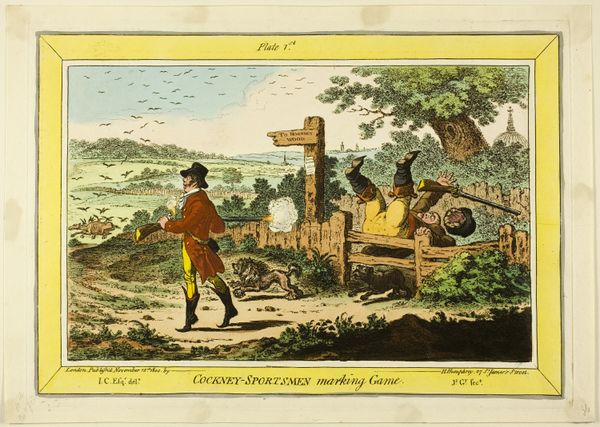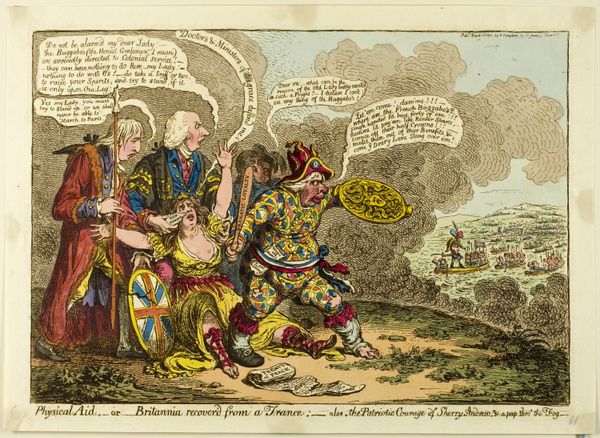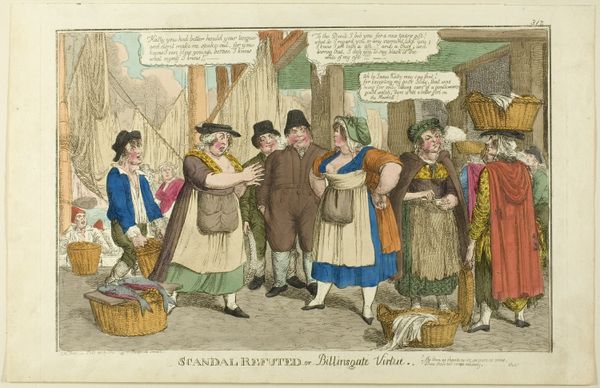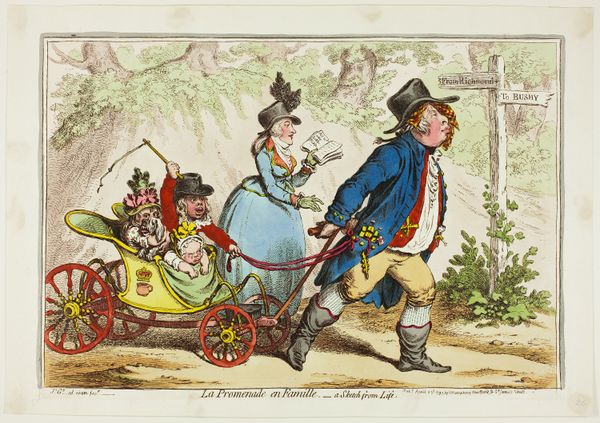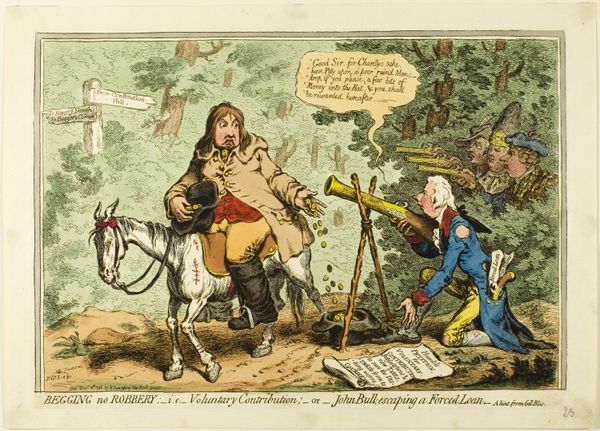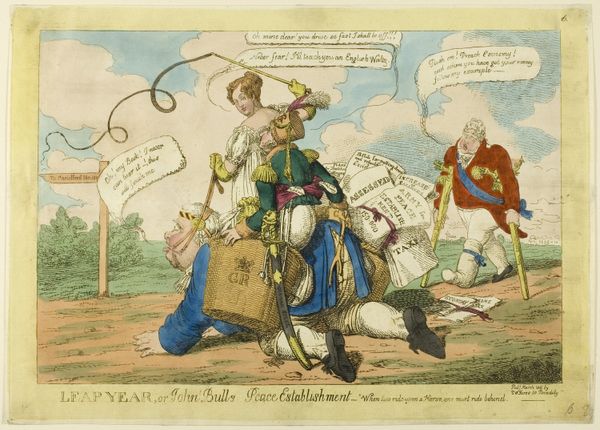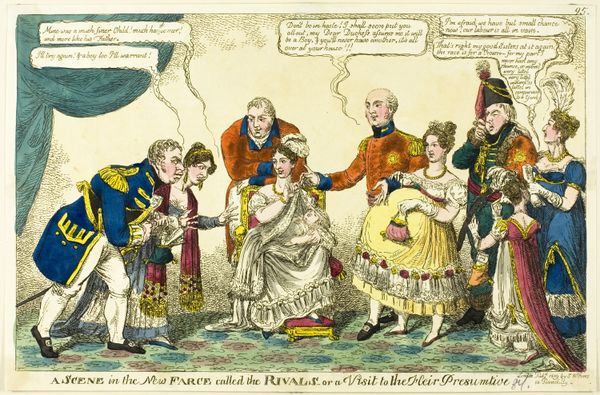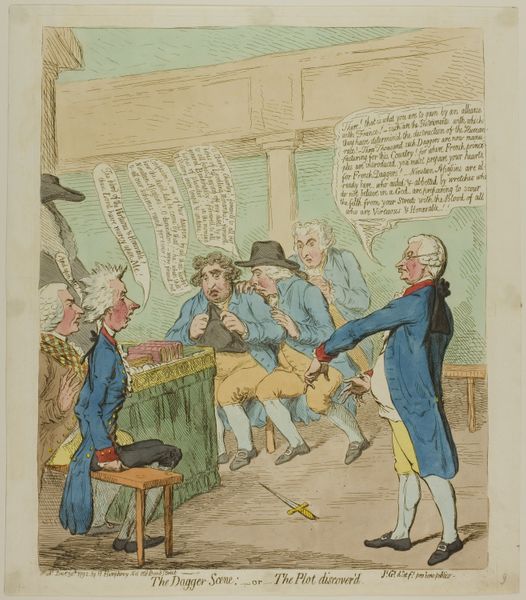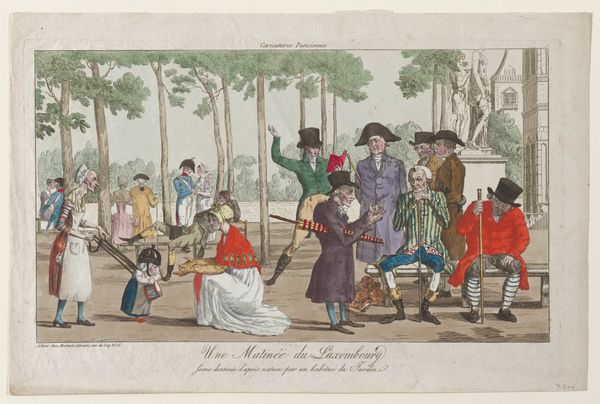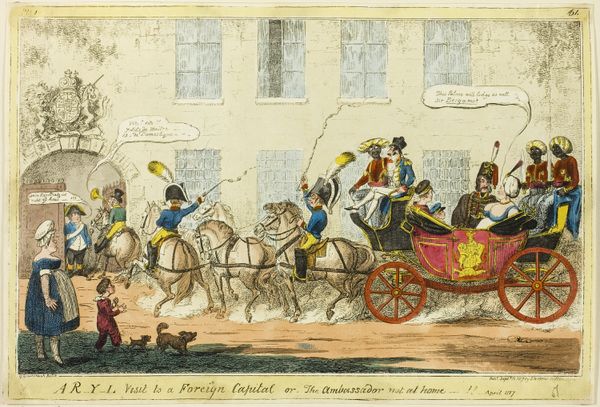
The Parson's Hobby, or Comfort for a Welch Curate 1819
drawing, print, etching, paper
drawing
16_19th-century
etching
caricature
paper
coloured pencil
england
romanticism
genre-painting
Dimensions: 250 × 350 mm
Copyright: Public Domain
Curator: Oh my, this piece has such a wistful humor about it. It almost feels like a bittersweet joke played on circumstance. Editor: We are looking at a print by Charles Williams, etched in 1819, titled “The Parson's Hobby, or Comfort for a Welch Curate.” It is currently part of the Art Institute of Chicago’s collection. What speaks to you first about the image, beyond its melancholy humor? Curator: Definitely the colors. The soft pastel shades lend this quite a dreamy, otherworldly feel. Even with its grounding in everyday poverty, there's an odd disconnect, right? Almost as if to say, “Well, if this is the hand we're dealt, might as well find the poetry in it." Editor: Indeed. Williams offers a critical view of the social landscape in 19th-century England, specifically the economic disparities within the Church. The curate, likely underpaid and overworked, attempts to maintain a semblance of dignity despite his poverty. The hobby-horse, an early bicycle, could be seen as a satirical symbol of upward mobility, out of reach for the working clergy. Curator: I love the little details! Look at his face. Despite the mode of transportation—or perhaps because of it—his face is bright, almost devilishly so. This machine—and mind you, it's all wood, not a spring to be seen—almost makes him look youthful! Do you think there is something else beyond economics and mobility? Editor: Good eye! Note also the family gathered at the doorstep: a visual representation of the curate’s dependents, subtly underscoring the financial strain he must endure. His own statement on the artwork, ‘Comfort indeed my Dear! it is only lem man yan, I shall now perform ye Service and be back by the time the kettle boils...’ says much about these daily constraints. The bicycle becomes less a solution and more of a commentary on this relentless treadmill. Curator: Which really emphasizes that duality, doesn't it? The ‘hobby’ is this odd thing. Is it for necessity, a faster trip on his rounds? Or just this silly attempt at enjoyment in bleak circumstances. I lean towards the latter. I almost feel sympathy for that spark of something silly, in the face of…well, everything. Editor: Absolutely. And by displaying this precarious balancing act, between aspiration and reality, Charles Williams makes us reflect on how societal structures shape our personal comforts—and perhaps, the absurdity of that pursuit. Curator: A perfect parting note for this print. Thank you. Editor: And to you, for these poignant observations.
Comments
No comments
Be the first to comment and join the conversation on the ultimate creative platform.
